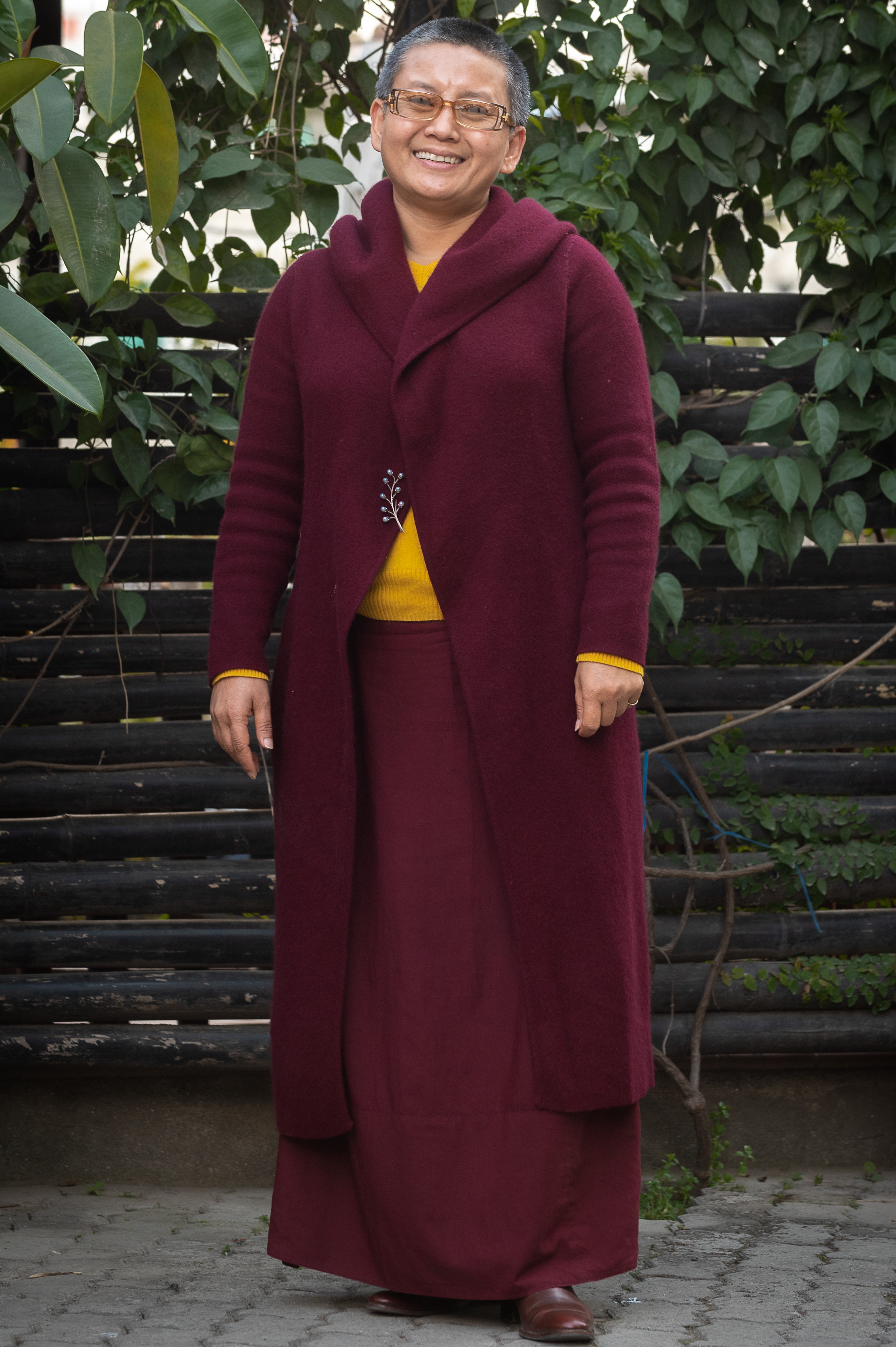My Vision for Nepal | Free Nepalis from mental pollution
Free Nepalis from mental pollution
Three ways to realize the vision:
1) Tweaking our education system to teach us self-evaluation.
2) Realizing our responsibility to hand over the country to the next generation in a good condition.
3) Evaluating why we time and again send the same old faces to run the country.
I believe every place in the world has its own essence and people’s behavior varies accordingly as well. In Nepal, our specialty seems to be mudslinging. Whether it is our political leaders, ordinary citizens, bureaucrats, or experts, they are all at it. This is actually mental pollution as it is induced by a thought, a visual image, or an insult or accusation. Unless you get rid of this mental pollution, you can’t clear other types of pollution from society.
We debate and comment on world politics, research, innovation, and every other trend, but we don’t have a clear idea about what’s happening in our own country, what are our problems, and how to resolve them. Nepalis like to give their opinion but not to act. We thus lag in all sectors. This is why we haven’t excelled at anything and no sector in the country is performing well.
I hold the political parties responsible for this; they are the ones who make and implement policies. The problem is that the citizens have been unable to feel the government’s guardianship. Those in power make rules and regulations but never follow them. Only ordinary citizens with no political connections are compelled to abide by these rules.
For example, during the pandemic, the political leaders were busy in large meetings and rallies, while the daily wage earners were not even allowed to go to work. This suggests there is little value of hard work. In fact, we should be working to make everyone believe that progress in life is possible only through hard work and diligence—there are no shortcuts.
Then, again, this doesn’t mean the public is completely innocent. A few years ago I had traveled to Gosaikunda and was greatly distressed by the pathetic state of the holy lake there. I learned that the so-called pilgrims throw their inner-wear in the holy pond. This is because there is a belief that sin is like filth in your clothes and if you throw them while bathing, all your sins will be washed away. Such practices make me question the very foundation of our faith.
Also read: Ani Choying Drolma: Make Nepalis realize the ancient wisdom in their midst
We all say Nepal is our homeland, but do we accept it from our heart? No. Our works do not reflect our commitment to our homeland. We do not think of its good and betterment. Nationalism is not based on empty political slogans but on the love we have for our land.
This country is actually run by a mob, and if you follow them instead of your intellect, neither you nor your country will progress. The mob can never take you on the positive path. For me, the mob is the combination of ego and negative energy. It likes to mock the hard-worker but then seldom does anything constructive itself.
Let’s realize that we are all weakening this country, imperiling future generations. It is our responsibility to hand this country over to the next generation in a good condition.
It is high time we evaluated our past decisions to hand over the country’s reigns repeatedly to the same set of leaders. Why are we continuously voting for the same persons when they have not worked for the country? We should learn from our mistakes. These leaders have been making us fight among ourselves, making us communal. We should not fall into this trap and should not lose our valuable time in this sideshow.
Our education system should teach us how to evaluate ourselves. That will help us review our own actions and learn from our mistakes. Love and religion have become things to show off, not something pure to be felt and cherished. This suggests that we have gotten our education system wrong. Only through the right kind of education can the right values be imparted.

Quick Questions:
1. What is spirituality for you?
It is a process of self-study and self-realization.
2. Are we going to see you in Nepali films again?
The cinema industry can positively impact society. But as of now, what constructive thing has our cine industry done to the society? Even though I acted in almost 200 movies, not one of them has made any social contribution. So I now seek a team that can make movies to bring positive social changes. I will be back soon.
3. A quote you live by.
“Life is not acting.”
My Vision for Nepal | Make Nepalis realize the ancient wisdom in their midst
Make Nepalis realize the ancient wisdom in their midst
Three ways to realize the vision:
1) Motivate youths to explore our ancient wisdom.
2) Make them practice the explored wisdom so that they realize its importance.
3) Encourage them to share their new knowledge with others.
Nepal has gifted to the world the very basis of existence. The philosophies, religions, scriptures, rites, languages, cultures, yoga, music, medicines, and science that originated here have greatly enriched humanity. Despite having such a treasure trove of ancient wisdom, the world knows us as a poor country. Forget the world, are we aware of our potential? No, because we don’t care. Even though I have no formal education, top universities across the globe invite me and many other ordinary Nepalis to visit their places and speak just because we in Nepal have the things they don’t have. Let’s realize this.
But most of us don’t know or care about our history and as a result, other countries appropriate our belongings. The world validates our things only after international companies recognize them. For example, we have long known the value of yarsagumba that is found in the upper Himalayas of Nepal, but the world recognized it as a medicinal herb only after the Chinese started buying and validating it. Presently, Gautam Buddha and Sagarmatha are the only two things with which we identify ourselves abroad. But neither do we follow Buddhist philosophy nor have we kept Sagarmatha clean.
In fact, Sagarmatha is a live example of how we are on the verge of losing the stuff of our collective pride. The government should not allow too many expeditions there. Here I am reminded of an old story where a greedy woman kills her hen that laid golden eggs. Our authorities are so greedy that they are allowing Sagarmatha to lose its sanctity, acting just like the woman in the story. We are commercializing everything we have, and this belies our values.
If each Nepali could contemplate our ancient wisdom, we would make a name for ourselves in the world and no foreign validation will be needed. There is a simple formula for this: explore, practice, and promote. It is younger generations who should mainly apply the formula as they are the ones who will pass this learning to the upcoming generations. If our youths closely observe our ancient wisdom, they will understand its value.
Explore
If you explore “pearls of ancient wisdom”, you will connect with them, which will ultimately motivate you to research them more. Exploration always produces knowledge—teaching us the value of the things we are digging up. This also helps you imagine how they could help you and the rest of humankind.
Also read: Min Bahadur Bham: Take Nepali cinema to the global stage within two decade
Practice
Practice makes your exploration perfect as it gives you experience and real-life knowledge. The practice of ancient wisdom is the utilization of innate powers as our ancient resources are deeply connected to nature. Through this practice, you could even realize your own mistakes, develop your own perceptions and start a new way of life.
Promote
The wise man who has explored and practiced the ancient wisdom will promote it so that everyone can benefit from it and live peaceful and joyous lives. Promoting it will preserve and pass our roots and identity to the newer generations. If we don’t value what we have, again, we will turn to foreigners for validation of things which have been an integral part of our heritage.
Nepal is a land of holy sites and the birthplace of many gods. History is replete with examples of sages arriving here for meditation and spiritual practices. Our country is a source of spiritual energy and the origin of spiritual knowledge. I have seen many successful and highly educated foreigners come and visit my Guru in search of such spiritual knowledge.
But Nepali people are adopting western materialistic lifestyles. It may sound a bit harsh but for me a person without spiritual knowledge doesn’t even qualify as a complete person. Not that I am against modern inventions and technologies. They in fact make it easier to spread and promote our wisdom and knowledge.
Without truly understanding the logic behind our wisdom, people often brush it aside as superstition. We will never progress if we deny our identity and roots. It is not necessary to tag this universal and timeless wisdom to any religion as knowledge is like sunlight. It does not discriminate against anyone; it rather lights up everyone’s path.
These days, a country’s health is mostly evaluated in terms of GDP, which is sad. Let’s learn from our neighbor Bhutan which talks about Gross National Happiness (a part of ancient wisdom). The parameter to measure success should be happiness: unless you are happy, you can’t progress—be it as individuals or nations. This is why the government here should have policies to explore, practice, and promote the ancient wisdom of Nepal.

Quick Questions:
1. What is spirituality for you, in a sentence?
It is a process of broadening your horizon of consciousness.
2. Which person inspires you the most and why?
Lord Buddha and my Gurus, as they have shown me the right path in life.
3. A quote you live by.
“It is better to light a candle than curse the darkness.”
My Vision for Nepal | Take Nepali cinema to the global stage within one decade
Take Nepali cinema to the global stage within one decade
Three ways to realize the vision:
1) By working to remove red-tape and bureaucratic hurdles for filmmaking.
2) By providing visual literacy and being responsible to the stakeholders of Nepali cinema.
3) By capturing our rich socio-cultural diversity and untold stories through our films.
Even though cinema, art, culture, and literature are interrelated, the Nepal government has put art, culture, and literature under the Ministry of Culture, Tourism and Civil Aviation, while cinema comes under the Ministry of Communications and Information Technology. With the changing times, the purpose of cinema has changed too, but the government doesn’t seem to realize this, creating unnecessary bureaucratic hurdles in building links within our fraternity. This is just one among many problems plaguing our film industry.
I believe the government should provide a favorable environment for those wanting to shoot films in Nepal. Many Nepalese shoot only to be frustrated by red-tape and hassles. For instance, if someone wants to take a scene featuring an army or police personnel, they first need to get the approval for uniform-use from the concerned headquarters. But police or army characters in novels or paintings don’t have to seek such approvals. Not that I am jealous of other mediums of art. I just wish the rules for cinema were relaxed too. Otherwise, these sorts of time- and money-consuming hassles will greatly demotivate filmmakers. Also there is no censorship on any other forms in art and there is no censorship in films in many countries in the globe, where there is a good industry of film. Whereas, there shouldn't be censorship on films in Nepal.
I believe Nepal can make itself known in the world through its cinema. This might sound ambitious, but it’s not that difficult if we can do certain things right.
A movie-maker’s vision and visual literacy determine the fate of their cinema. Visual literacy is a set of abilities that enables an individual to understand and analyze contextual, cultural, ethical, aesthetic, intellectual, and technical components involved in production and use of visual materials. If we can make better movies, the visual literacy of our audiences will also enhance, in turn making them good critics.
The prevailing social mindset also determines the mentality of an individual. If you take that individual as an audience, his social orientation will depend on the movies he watches. For instance, before the establishment of Gurukul, the theater scene in Nepal was facing an existential crisis. But in the past two decades, it has been backed by good audiences. Why? Because existing theaters oriented these audiences a certain way. Most importantly, they passed their thoughts to the upcoming generation. Now, the theaters will go extinct only if there is a massive change in audience mindset. This is a part of visual literacy, so it is important to develop a strong base for long-term sustenance of your medium.
Also read: Roja Kiran Basukala: Bring governmental services to people’s fingertips
Separately, there is a conventional belief that shooting in Nepal is all about mountains. That’s not true. Many things happening in our society can be reflected in our cinema. If Nepali filmmakers could take up those stories, foreign projects will approach us for similar content, thus diversifying our offerings.
Our country’s recent political changes, for instance, could be great cinema-material. The Nepali cinema industry’s credibility could also help politicians better understand our society and citizens. Those in the government can see the movies as their examiners, pointing to the possible areas of improvement in the society. If the government wants, it can make cinema a weapon for social transformation as films are a powerful mass awareness tool and people tend to copy things in them.
But we as filmmakers also have to do our bit. Our team has been working on some agendas and I would like to share them with all because even if I cannot achieve them all, someone else will. In the next few years, we are working to establish a world-class film school in Nepal where youngsters can pursue higher studies. Prior to that we are trying to organize an international film festival within a few years in order to create a momentum for the creation of a cinema hub in Nepal. Our team is also working to generate monetary support for filmmakers through the government, public institutions as well as through private funding, and distribute world cinema in Nepal. In fact, the FDB has already started financially supporting small-scale filmmakers.
Lastly, we must promote socio - cultural exchange through films. For example, if a filmmaker is shooting in Manang, he must inggage local talents, cultures, local spirits, and languages in order to keep the authenticity of the film. We shouldn't go there only for the landscape.
I am confident that addressing these things will elevate the status of Nepali cinema, ultimately making it world-class. Even if the government doesn’t help us, we will still achieve our goals as the upcoming generation already has the requisite learning, content, and aesthetic and technical skills. It is just a matter of time.

Quick Questions:
1. Which Nepali filmmaker/s do you admire the most?
Deepak Rauniyar, Abinash Bikram Shah, Nabin Subba, Pooja Gurung and Bibhusan Basnet etc.
2. How do you define a ‘good movie’?
For me, a good film is one that gives me pleasure, challenges my intelligence, and encourages me to reflect on society that could hit my mind & soul and be memorable forever.
3. A quote you live by.
“Cinema without risk is like having no sex and expecting to have a baby. You have to take risks.” - Francis Ford Coppola
My Vision for Nepal | Bring governmental services to people’s fingertips
Bring governmental services to people’s fingertips
Three ways to realize the vision:
1) Mass awareness campaigns for digital literacy.
2) Stopping the brain-drain of technical experts for the development of information systems.
3) Better securing information systems.
With the advancements in Information and Communication Technology (ICT), there is a possibility to bring all public services in one window system to citizen’s fingertips.
The government started providing online services to its citizens with the rapid increase in internet penetration and adoption of mobile broadband technologies. However, such online services were not up to the mark before the Covid-19 pandemic. They gradually gained popularity as they became convenient for people to go online while they were confined in their homes during the lockdowns. While the transition from physical to virtual services was not that easy, many incidents of cyber-attacks were also reported.
The government needs to get its acts together to make its online services meet changing demands. Nobody wants to—and should not have to—share personal information online unless they feel secure. So ensuring cyber security to make people feel safe enough to capitalize on this technology-development is a must. We will obviously face new challenges in the coming days and we must brace ourselves for that. It is thus vital that we gain public trust and encourage them to use our services without any fear of data breaches.
Cyber security is something that must be handled at both ends: from the side of the government as well as from the side of the end-users, or the citizens.
Advancement in ICT is the enabler for developing systems across multiple dimensions. The ICT human resources currently serving the Government of Nepal are inadequate to meet the growing demands in several sectors. With the country’s adoption of the three-tier federal, provincial, and local government systems, more and more ICT personnel are required. We cannot overlook the fact that ICT-friendly personnel are needed even at the municipal ward level.
Ironically, ICT ministry is mostly found to be led by gazetted special first class officers from Administration Service. Out of 65 gazetted special first-class officers in civil service, only 13 are found to be representing the technical field, mostly from civil engineering service. That means ICT experts in the civil service are envisioned to become ICT leaders. Moreover, computer science or computer engineering or information technology streams are yet to be properly recognized in government services. They still fall under the ‘miscellaneous’ category even as other non-governmental sectors are making rapid advancements with greater use of manpower in these areas.
Also read: Juju Kaji Maharjan: Secure every kid’s access to basic needs
Every year, thousands of fresh graduates in computer engineering, computer science and information technology seek new employment and higher education opportunities. The limited opportunities in Nepal entices them abroad, where they head in search of better education and career opportunities. Even though they have been doing good work abroad, the Government of Nepal has not been able to tap these young talents. If they could be retained in the country, we could speed up our progress and achieve my vision.
Against this backdrop, I dream of a Nepal that can guarantee free health services, free education, and enough jobs, as promised by the new constitution. ICT can play a vital role in achieving these constitutional statements. For this, ICT education needs to be provided at the foundation level without gender bias. Gender equality needs to be prioritized in each sector, too, as women constitute over half of the national population. As the ICT sector has to coordinate with every other sector, greater women’s participation here means their greater representation in other areas as well.
The ICT industry is no longer isolated; it is cross-cutting. Thus when the government makes progress on ICT, all other sectors will reap the rewards, saving a lot of time and money in the process. ICT personnel are, therefore, key to bridging diverse sectors via coordinated information systems.
Many governmental offices already provide online services. However, many service seekers are still unaware of the available services and continue to queue up outside physical offices. Perhaps we are in a state of transition. One way of overcoming people’s reluctance to go digital would again be through a broad awareness campaign. Moreover, citizens should also try to be self-literate. Our population can be divided into three categories: illiterate, digitally literate, and experts. We have the challenge of elevating all our people into at least digitally literate categories. For this, we have to start mass awareness campaigns and promote general ICT skills for everyone.

Quick Questions:
1. What is the best thing about your job?
The faster pace of developments and updates in the telecom industry has resulted in telecom regulation with its own growing set of challenges day by day. So, unlike other bureaucratic jobs, mine is not monotonous. I am constantly updating myself and enjoy working with the challenges ahead.
2. Are women in the ICT disadvantaged?
Whoever comes into this field has to put equal effort regardless of any gender representation. However, when women are at the peak of their career development, mostly married women often struggle to juggle between work and family life balance due to stereotypical mindset. This has led women to be low represented in the ICT industry.
3. A quote you live by.
“Opportunities never knock your door twice.”
















